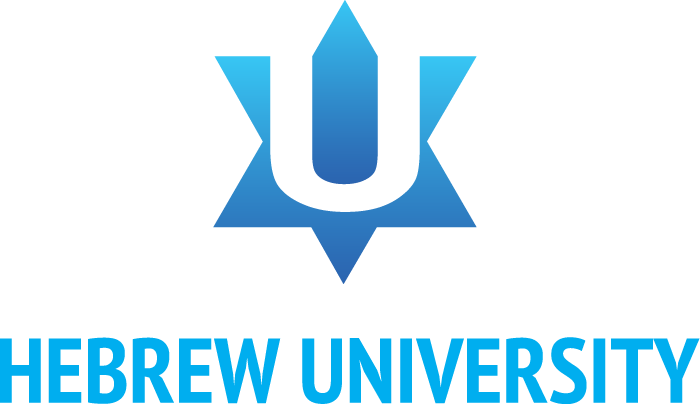
The Doctor of Nursing Practice (DNP) is designed to prepare experts in nursing practice. It is the pinnacle of practice-focused nursing degrees, building upon master’s programs by providing an educational foundation in quality improvement, evidence-based practice, and systems leadership, among others. For nurse practitioners and other advanced practice registered nurses (APRNs), the DNP aligns with the predominant model in healthcare where advanced practitioners with demonstrated expertise hold doctoral-level degrees. In this sense, it can be compared to the doctor of medicine (MD), doctor of physical therapy (DPT), doctor of psychology (PsyD), and doctor of pharmacy (PharmD), among others.
DNP-prepared nurses bring a blend of clinical, leadership, economic, and organizational skills that puts them in a unique position to incisively critique nursing practice and design patient care programs that are economically feasible, locally acceptable, and that significantly impact healthcare outcomes.
Nursing practice for DNP nurses can include both:
- Direct patient care in an APRN role (nurse practitioner, nurse midwife, clinical nurse specialist, nurse anesthetist) and patient population focus (family/individual across the lifespan, adult-gerontology, women’s health/gender-specific, neonatal, pediatrics, psychiatric/mental health)
- Aggregate/Systems/Organizational role (public health, healthcare policy, nurse education, executive leadership/ administration, informatics)
This means DNP nurses are prepared to perform nursing interventions that influence healthcare outcomes for individuals or populations by:
- Providing direct patient care
- Managing the care of patients and patient populations
- Administrating in nursing and healthcare organizations
- Developing and implementing health policy
Unlike the Ph.D., the research-focused doctorate, the DNP is designed for nurses seeking a terminal degree directly related to nursing practice and is chosen by nurses seeking some of the highest level positions in clinical nursing leadership, administration, and management.
Since May 2018, after publishing a white paper entitled The Doctor of Nursing Practice Degree: Entry to Nurse Practitioner Practice by 2025, the National Organization of Nurse Practitioner Faculties (NONPF) has been the organization carrying the torch in support of the DNP becoming the minimum education requirement for NPs and championing the campaign for universities to migrate MSN programs for APRNs to the DNP level. But this kind of support for the DNP is nothing new.
More than 15 years ago, in 2004, AACN member organizations voted in support of the Position Statement on the Practice Doctorate in Nursing. The gist of the AACN’s official statement is that the nation’s changing healthcare environment increasingly requires advanced practice nurses with the highest level of scientific knowledge and practice expertise to ensure optimal outcomes and patient safety as healthcare itself becomes more complex and technical. Amid a growing physician shortage, many also see this as the best and only way to improve access to high-level primary and preventative care comparable to what people get from MDs.
Some of the factors behind AACN and NONPF support of advanced practice nursing education at the doctoral level include:
- The rapid expansion of nursing practice knowledge
- The increased complexity of patient care
- National concerns about the quality of care and patient safety
- A shortage of nursing personnel, which demands doctoral-educated leaders who can design and assess the care
- A shortage of doctoral-prepared nursing faculty
- Increasing expectations for the preparation of other members of the Healthcare Team
The University Central of Ashdod College of Nursing offers the DNP for nursing professionals online. The 60 credit post-graduate DNP program may be completed in two academic yearsof full-time studies (Fast Track) or four years of part-time study. DNP students will be expected to progress in their plan of study and demonstrate satisfactory attainment of course objectives and terminal program competencies. All course work must be completed with a minimum grade of “B” or “Pass” for non-letter grade courses.
Program Outline:
3 Credits
Course Description:
This course introduces the advanced practice nurse to the world of contemporary nursing knowledge, as formalized in conceptual models of nursing and nursing theories applied to clinical practice. There is emphasis on the metaparadigm, philosophies, conceptual models, theories, and empirical indicators linking them to clinical practice. One week duration.
Learning Outcomes:
- Upon completion of this course, the graduate student will be able to:
- Develop an understanding and appreciation of the complexity of nursing research.
- Develop professional ethics for leadership team of the healthcare organizations
3 Credits
Course Description:
This course prepares students to the mission and values of the university and nursing profession on the 21stCentury. The purpose is to provide appropriately skilled individuals to deliver the care needed by the population. However, curricula are shaped by the regulation of professional groups, professional accountability and demarcation issues. Current changes in the delivery of healthcare, in educational theory that advocates increased integration of theory and practice1-3 and in the international agreements on mobility of qualifications have challenged our traditional educational pathways.
3 Credits
Course Description:
This course prepares students to developing interprofessional education (IPE) curricula that improve collaborative practice across professions has proven challenging. A theoretical basis for understanding collaborative practice in health care settings is needed to guide the education and evaluation of health professions trainees and practitioners and support the team-based delivery of care.
3 Credits
Course Description:
The focus of this course is to relate philosophy of science, philosophy of nursing science, and one’s personal philosophy to the development of nursing knowledge. The role of scientists in nursing and in society will be explored. Emphasis is on the process of analysis, and the ability to present the pros and cons of philosophical issues.
3 Credits
Course Description:
This course addresses advanced leadership roles in the clinical setting related to information systems and patient care technology. The content focuses on information systems that assist in monitoring outcomes and quality improvement, patient safety, and evaluation and selection of patient care technology and consumer health information sources. Legal and ethical issues related to information systems and patient care technology will be explored in the domain of health care.
3 Credits
Course Description:
Provides DNP students with the necessary skills and knowledge to use evidence and health data for quality improvement in a health setting. Uses quality system to evaluate change and common methods used in quality improvement processes.
3 Credits
Course Description:
This course focuses on course design; the use of instructional strategies, simulation, and technology in classroom and online teaching environments; and assessment and evaluation of student learning. The ethical, legal, and cultural competencies for nurse educators will be addressed.
3 Credits
Course Description:
This course will build upon health assessment skills developed in the professional nurse’s basic educational program. The theoretical and clinical basis for assessment in advanced clinician will be developed. The process whereby the advanced clinician utilizes comprehensive physical, psychosocial, and cultural assessment across the lifespan to gather specific data relevant to common health problems is demonstrated. Faculty and preceptors facilitate laboratory and clinical experiences, which focus on assessment of clients and presentation of findings in a variety of settings.
3 Credits
Course Description:
This course explore the health Information Technology for healthcare organizations. Data driven decision making (DDDM) is a process that involves collecting data based on measurable goals or KPIs, analyzing patterns and facts from these insights, and utilizing them to develop strategies and activities that benefit the business in a number of areas.
3 Credits
Course Description:
This course examines managerial and leadership concepts, issues, roles and functions as applied to the role of the healthcare professional in various settings. Apply theories of effective leadership and management within selected health care arenas.Utilize the skills of nursing process, critical thinking, ethical decision-making, communication, and therapeutic nursing intervention in managing culturally competent, cost effective care of groups of clients across the wellness/illness continuum. Collaborate with interdisciplinary health care team members in prioritizing and coordinating quality/cost effective healthcare.Demonstrate leadership and management of a care-giving team comprised of individuals with varied cultural and ethnic origins, and varied levels of clinical knowledge and competencies. Utilize skills of inquiry and research as a means to enhance knowledge base, facilitate change, and improve quality of care. Demonstrate professional accountability for effective leadership within nursing practice and for advancement of the profession.
3 Credits
Course Description:
The course provides the student the opportunity to discuss concepts and issues related to organizational performance improvement, organizational performance indicators, and change strategies. Facilitates preparation for comprehensive exams and the design and conduct of dissertation projects.
3 Credits
Course Description:
This course will address current issues within the field of addictions and mental health treatment. Possible topics include: The role of gender and culture in therapeutic relationships, Bereavement, HIV, Adolescent Issues, Specialized Testing, the “Cultures” of Addiction and Recovery, Family Issues, Life Span Issues related to behavioral health and Program/outcomes assessment. These courses are offered to broaden the student’s experience, as well as assuring that advancements and changes have a mechanism to be addressed within the program structure.
3 Credits
Course Description:
This is an doctotal course in epidemiologic methodology covering study design for investigation of both infectious and chronic diseases. Evaluation of screening programs and health services research will also be discussed. The laboratory problems, based on real data, will include an outbreak investigation, natural history of infectious diseases, validity of clinical tests, survival analysis, and clinical trial and etiologic studies.
3 Credits
Course Description:
This is course will allow the prospective doctoral student to select a topic to support his/her thesis. The thesis advisor will be required to approve the attendance of DNP seminar.
3 Credits
Course Description:
This is a doctoral course in epidemiologic methodology covering study design for investigation of both infectious and chronic diseases. Evaluation of screening programs and health services research will also be discussed. The laboratory problems, based on real data, will include an outbreak investigation, natural history of infectious diseases, validity of clinical tests, survival analysis, and clinical trial and etiologic studies.
3 Credits
Course Description:
Under the supervision of the Thesis Committee, the prospective doctoral candidate will prepare the pre-thesis documents based on current research.
15 Credits
Course Description:
This course will allow the prospective doctoral candidate to complete the approved thesis project or capstone project under the directive of the Thesis Commttee.
Total Credits Hours
60
Disclaimer: Hebrew University and Jewish University System (JUS) reserve the right, because of changing conditions, to make modifications of any nature in academic programs and requirements of the university and its constituent colleges without advance notice. Students are advised to consult regularly with an academic advisor concerning their programs of study.


